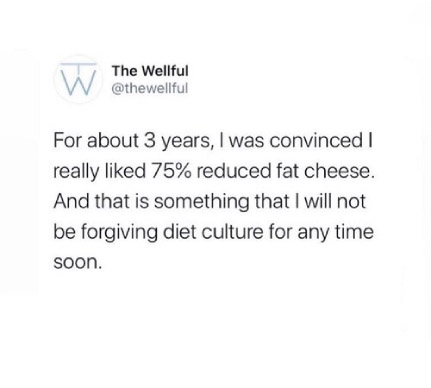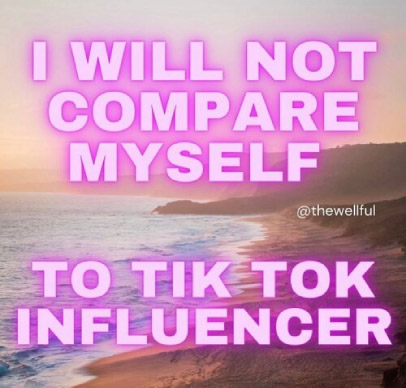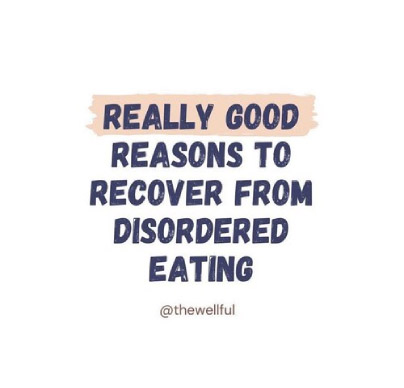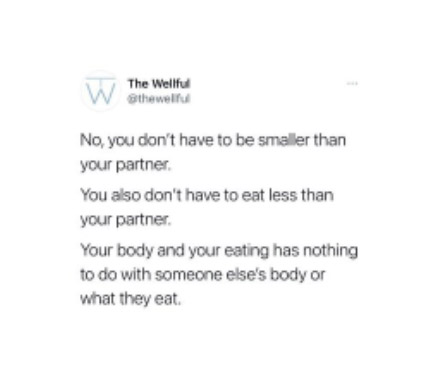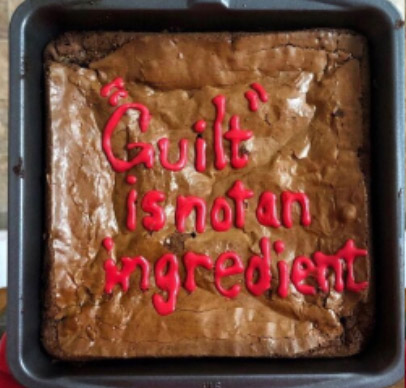Raise your hand if you’ve been exposed to fad diets and unrealistic body standards. Just about everyone has. Whether or not we’re aware of it, most of us have had negative interactions with diet culture rules and body image pressures and expectations at some point or another. Given that, it can be hard to know what “normal” even is when it comes to a healthy relationship with food. This looks a little bit different for each individual but we’re happy to provide resources and support to help you move towards a positive, sustainable relationship with food that feels good for you. Let’s walk through the steps to foster a balanced and more sustainable approach to eating.
Recognize the Impact of Diet Culture
First things first, we need to understand how diet culture affects us. Diet culture perpetuates unrealistic body standards and encourages restrictive food practices, leading to unhealthy food obsessions, negative self-talk and decreased body satisfaction. Recognizing these patterns is the first step towards living more aligned with your values.
Embrace Intuitive Eating
One approach to establishing a healthy relationship with food is intuitive eating. This is about tuning into your body’s hunger and fullness cues, eating with flexibility, and moving away from labeling foods as “good” or “bad.” When I work with clients we start by exploring what influences someone’s food choices throughout the day. Is it food rules? Negative self-talk? What you think you “should” eat? The calorie number on the menu? When do you have the most or least permission around food? All of these are stories we’ve been told by the media throughout our lives but none of them are designed to promote a healthy relationship with food. Our work together will start with exploring your lived experiences, current challenges around food, food rules and your relationship with your body.
Ditch the Food Guilt
Food guilt has no place in a healthy relationship with food. I like to say “guilt is not an ingredient!” So all foods are 100% guilt-free. Whether you’re eating a fear food or eating a food you don’t usually have, remember that food is meant to be enjoyable.. Eating is more than just fuel; it’s a source of pleasure, tradition, and comfort. When we create a safe place to challenge food rules, increase trust with your body, and embrace the joy and variety food brings to life you can enjoy food without the guilt or shame.
Adopt Mindful Eating Practices
Let’s be real, not every meal is going to be mindful and without any distractions. However, mindful eating can be a great way to practice tuning into your body, noticing what thoughts, feelings, worries or narratives come up for you around food and give you more information about how your body feels when you eat certain foods or meals. Mindful eating involves being fully present and appreciating the sensory experiences of eating. This practice enhances meal satisfaction and enjoyment. To be honest, I’m sometimes wary of using the language ‘mindful eating’ because I know this language is sometimes code for ‘eat less’ or ‘restrict’. I want to clarify that when I talk about mindful eating, a ‘success’ doesn’t mean someone ate less, or only noticed their fullness. Mindful eating can be a tool to help you notice what foods you actually like, feel empowered and confident in your own ability to make choices around food after spending years relying on diet culture, food tracking apps or other food ‘shoulds’. If you are curious about what mindful eating could look like for you, or how this would support you developing a healthy – and positive – relationship with food, working with a non-diet dietitian nutritionist like myself can be helpful.
Challenge Food Myths
Whew, the internet can feel like a total maze of conflicting nutrition information! Educate yourself on nutrition with evidence-based information, ideally from registered dietitians. There are so many food myths floating around magazines, the Internet, Instagram, TikTok, etc. Information overload is real; not only can it make you overwhelmed but it’s also likely to result in you not knowing what’s fact and what’s fiction. Social media is fun but it’s filled with a lot of faux experts. Instead of getting your nutrition advice solely from TikTok, work with a dietitian nutritionist. We can debunk food myths and guide you with individualized evidence-based support.
Practice Self-Compassion
Self-compassion is important in building a healthy relationship with food. Be kind to yourself on your journey. Acknowledge that everyone’s nutrition needs and preferences are unique. Treat yourself with empathy and understanding, just as you would your best friend..
Make Movement Fun
We’ve been so conditioned to believe that working out needs to be extremely challenging to ‘count’… what about enjoying the process? Finding forms of physical activity that you actually enjoy while you’re doing them can be a real game-changer. Think about what you liked to do as a kid: dance? Play on the playground? Go on long walks and explore? Riding your bike? Try to reframe exercise from punishment or way to ‘earn’ your meals to something you do that can help you feel stronger, offer community or get out of your head and into your body. If exercise feels like a charged word to you, it may even help to use different words. Movement or activity could replace “exercise” and might just help you adopt a better mindset.
Seek Out Support
You don’t have to do this alone. Some people think, “It’s just food! It should be easy!” The truth is that we each have a body story, and lived experiences with food, dieting, disordered eating or beliefs that get tangled into our relationships with food. Navigating your relationship with food may require support. Don’t hesitate to join supportive communities or seek professional guidance from a registered dietitian like myself.
Explore Resources for a Diet-Culture-Free Life
Developing a healthy relationship with food can be transformative and could lead to a more fulfilling and balanced life. By adopting intuitive eating, practicing self-compassion, and seeking out support, you can better navigate through diet culture and nourish both body and mind. Our team at The Wellful is here to support you in this journey.
At The Wellful, we’re committed to dismantling diet culture and providing resources for a positive relationship with food. Our community is here to support you. We offer education, support, and a safe space for pursuing a life free from food obsession or restriction. Contact us at (925) 725-2761 or schedule a free discovery call to get started. Together, we can help you nurture a healthier relationship with food and your body.






